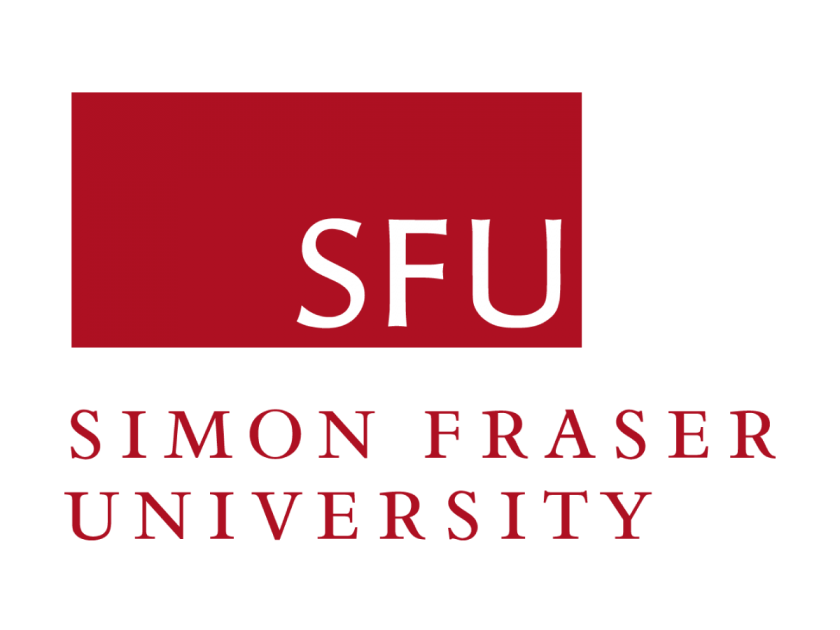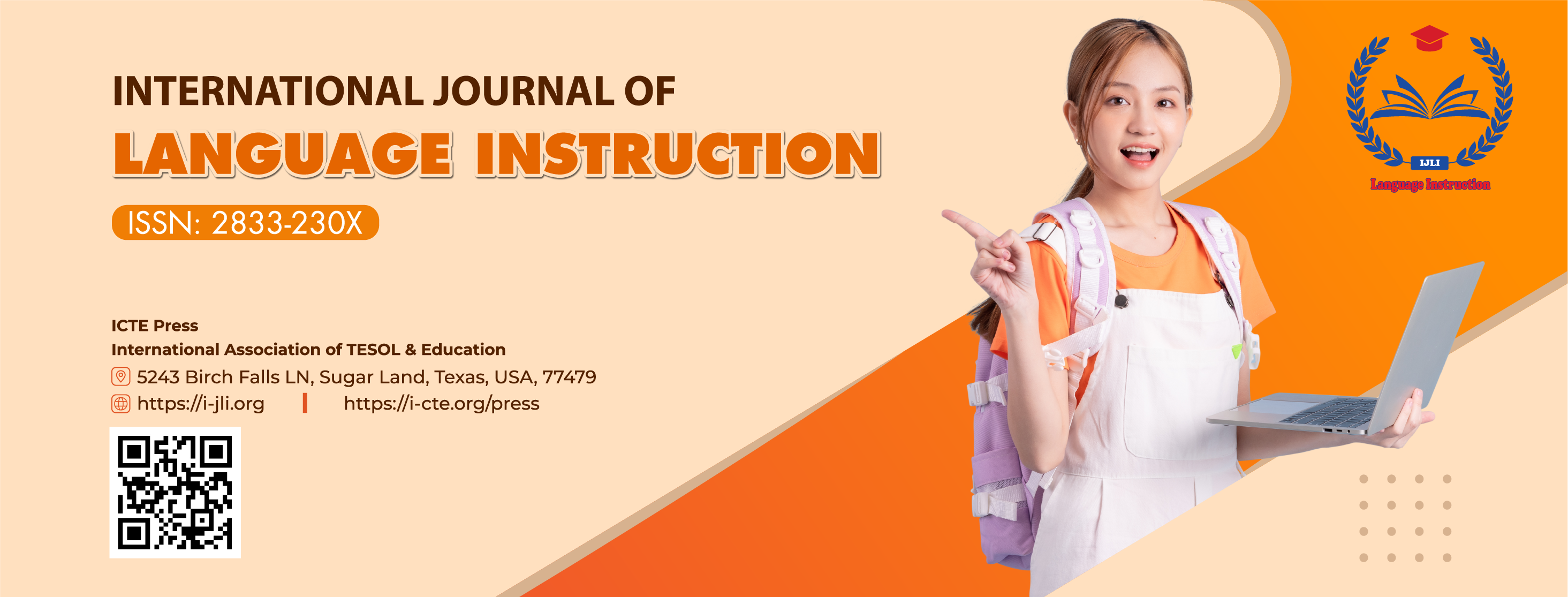Exploring Vietnamese EFL Students' Perceptions towards Literature Courses in English Studies Program
DOI:
https://doi.org/10.54855/ijli.23234Keywords:
Vietnamese EFL learners, Literature courses, Perceptions, Benefits, ChallengesAbstract
This study aimed to identify Vietnamese EFL students' perceptions of literature courses in the English Studies Program at a university in the Mekong Delta. A total of 77 English-majored learners who were in their final year participated in the study. The researcher employed a quantitative research design and collected the data using a survey questionnaire. The questionnaire asked participants to select the importance, benefits, and challenges when they enrolled in different literature courses. The results indicated that literature provided a volume of grammatical structures and vocabulary, knowledge of culture, and fostered students' personal skills development. The participants also perceived the length of works and the complexity of different literary devices as their most significant challenges when participating in literature courses. Learners generally experienced more benefits than challenges during their literature learning process. The study suggested that stakeholders might take into consideration integrating more literature courses in the English Studies program.References
Abdelrady, A. H., Jahara, S. F., Elmadani, A. E. A., & Kumar, T. (2022). The attitude of Sudanese EFL learners towards literature to enrich their vocabulary building. Education Research International, Volume 2022, Article ID 7569371, 1-12. doi: https://doi.org/10.1155/2022/7569371
Akanmu, D., & Rasheed, A. O. (2015). Language and culture among the Yoruba: a study of argot, cant, jargons and slang as forerunners of new idioms and idiomatic expressions in the 21st century. International Journal of Innovation and Applied Studies, 13(3), 669-676.
Alemi, M. (2011). The use of literary works in an EFL class. Theory and Practice in Language Studies, 1(2), 177-180.
Al-Matrafi, H. (2022). Educators' attitudes toward teaching western literature to Saudi university learners. SSRN Electronic Journal, 13(1), 221-239. doi: https://doi.org/10.2139/ssrn.4085208
Aljohani, M. (2017). Principles of "constructivism" in foreign language teaching. Journal of Literature and Art Studies, 7(1), 97-107.
Al-Saeed, S. J., & Alenezi, A. A. (2021). Assessing the communicative use of literary texts in EFL coursebooks. English Language and Literature Studies. 11(2), 68-77. doi: https://doi.org/10.5539/ells.v11n2p68
Ali, E. M. T., & Ahmed, A. A. O. M. (2015). The Impact of Teaching English Past Tenses through Literature in Sudanese EFL Classrooms on the Promotion of Learners' Performance. International Journal of Applied Linguistics and English Literature, 4(3), 1-8.
Amalyah, L. S. (2021). Difficulties in teaching English for Specific Purposes: Empirical study at Vietnam universities. AMCA Journal of Community Development, 1(1), 6-8. https://doi.org/10.51773/ajcd.v1i1.21
Atek, E. S. E., Hassan, I., Azmi, M. N. L., Yah, M. H., & Azmi, N. J. (2020). Popular approaches to the teaching of English literature among students in selected Malaysian secondary schools. International Journal of English Language and Literature Studies, 9(4), 339-348.
Aydin, M., & Sariçoban, A (2022). EFL Learners' Attitudes towards the Use of Literature Regarding Cultural Awareness, Personal Reflection, and Language Skills. RumeliDE Dil ve Edebiyat Araştırmaları Dergisi, (30), 1184-1195.
Aydinoğlu, N. (2013). Use of literature in language teaching course books. International Journal of New Trends in Arts, Sports & Science Education (IJTASE), 2(2), 36-44.
Başar, İ., & Küçükali̇, S. (2021). Yabanci dil olarak ingilizce siniflarinda edebiyat kullanimi. The Journal of Academic Social Sciences, 122(122), 167–173. doi: https://doi.org/10.29228/asos.52686
Bloemert, J., Paran, A., Jansen, E., & van de Grift, W. (2019). Learners' perspective on the benefits of EFL literature education. Language Learning Journal, 47(3), 371–384. doi: https://doi.org/10.1080/09571736.2017.1298149
Carter, R & Long, M. (1991). Teaching Literature. Harlow: Longman.
Chalikendy, M. A. (2015). Literature: A natural source for teaching English in ESL/EFL classrooms. International Journal of Applied Linguistics and English Literature, 4(6), 224-234.
Cheung, A., & Hennebry-Leung, M. (2023). Exploring an ESL teachers' beliefs and practices of teaching literary texts: A case study in Hong Kong. Language Teaching Research, 27(1), 181-206. https://doi.org/10.1177/1362168820933447
Chi, D. N. (2022). Vietnamese EFL Learners' Critical Thinking in An English Literature Course. Journal of Ethnic and Cultural Studies, 9(1), 77-94. https://doi.org/10.29333/ejecs/899
Çirakli, M. Z., & Kiliçkaya, F. (2011). Literature courses in EFL curriculum: Pre-service language teachers' perceptions. Pegem Eğitim ve Öğretim Dergisi, 1(3), 11-15.
DiCerbo, P. A., Anstrom, K. A., Baker, L. L., & Rivera, C. (2014). A review of the literature on teaching academic English to English language learners. Review of educational research, 84(3), 446-482.
Gabriel, B. (2019). Students' Perceptions of using Literary Genres to Enhance Language Proficiency. International Journal of English Literature and Social Sciences (IJELS), 4(2), 221-227.
Gao, H. (2017). Nonverbal communication in foreign language teaching and learning-on the importance of body language. Proceedings of the 2017 International Conference on Education, Economics and Management Research (ICEEMR 2017). Presented at the 2017 International Conference on Education, Economics and Management Research (ICEEMR 2017), Singapore. doi: https://doi.org/10.2991/iceemr-17.2017.19
Golkowska, K. U. (2011). Using Insights from Cognitive Literary Study to Teach ESL/EFL Reading. Language Education in Asia, 3(1), 103-112.
Hamane, S. & Guetatlia, S. (2022). Using literature to enhance language skills for EFL learners. Global Journal of Foreign Language Teaching. 12(1), 30-37 https://doi.org/10.18844/gjflt.v12i1.6503
Han, H. D. G., Anh, P. H. P., Nhung, P. H., Ngan, L. T., & Dan, T. C. (2022). Difficulties and suggested solutions towards studying English - American literary works. European Journal of Applied Linguistics Studies, 5(2), 116-140. doi: https://doi.org/10.46827/ejals.v5i2.376
Hişmanoğlu, M. (2005). Teaching English through literature. Journal of Language and Linguistic studies, 1(1), 53-66.
Huynh, N.T., To, V., Carrington, V., & Thomas, A. (2023). An East Asian framework for interpreting cultural representations in Vietnamese children's picturebooks. In V. To, A. Thomas & S. Humphrey (Eds.), Systemic functional linguistics theory and application in global contexts: Selected papers from the 1st international online systemic functional linguistics interest group conference (pp.35-49). The University of Tasmania. https://doi.org/10.25959/MKMC-2C45
Ilyas, M., & Afzal, N. (2021). Teaching Literary Texts through Cultural Model to EFL Students. Eurasian Journal of Applied Linguistics, 7(2), 22-30.
Kaowiwattanakul, S. (2021). CEFR Based Learning Approach: Using Literature to Enhance EFL Students' Reading Skills and Critical Thinking Skills. English Language Teaching, 14(11), 66-79.
Karakaya, E., & Kahraman, A. (2013). Learners' Attitudes Towards Literature Use and. International Journal of Applied Linguistics and English Literature, 2(5), 155-166.
Karatay, H. (2017). The Effect of Literature Circles on Text Analysis and Reading Desire. International Journal of Higher Education, 6(5), 65-75.
Khan, M. S. R., & Alasmari, A. M. (2018). Literary texts in the EFL classrooms: applications, benefits and approaches. International Journal of Applied Linguistics and English Literature, 7(5), 167-179.
Khatib, M., Rezaei, S., & Derakhshan, A. (2011). Literature in EFL/ESL Classroom. English language teaching, 4(1), 201-208.
Lazar, G. (1993). Literature and language teaching: A guide for teachers and trainers. Cambridge: Cambridge University Press.
Le, T. T. T., Phan, T. H. T., Pham, T. T., & Phan, H. T. T. (2022). Learners' perceptions of active learning in Introduction to Literature. European Journal of English Language Teaching, 7(6). doi: https://doi.org/10.46827/ejel.v7i6.4516
Leki, I. (1991). Twenty-five years of contrastive rhetoric: Text analysis and writing pedagogies. Tesol Quarterly, 25(1), 123-143. https://doi.org/10.2307/3587031
Liaw, M. L. (2001). Exploring literary responses in an EFL classroom. Foreign Language Annals, 34(1), 35-44. https://doi.org/10.1111/j.1944-9720.2001.tb02800.x
Lien, T. T. N. (2014). Discourse-based syllabus for teaching literature to EFL learners in Vietnam. Indonesian Journal of Applied Linguistics, 3(2), 128-139.
Macalister, J., & Nation, I. P. (2019). Language curriculum design. New York: Routledge.
Mart, C. T. (2018). Literature in language teaching: A recipe to maximize learning. L1-Educational Studies in Language and Literature, 18, 1-25.
McRae, J. (1991). Literature with a small'I'. London: Macmillan.
Mokhtari, R., Pourdana, N., & Varzandeh, O. (2013). EFL learners' language proficiency and their performance on (non) literary inference demanding tests. Theory and Practice in Language Studies, 3(12), 2274.
Moghadam, S. M., & Ghafarsamar, R. (2018). Using drama and drama techniques to teach English conversations to EFL learners. Global Journal of Foreign Language Teaching, 8(2), 92–101. doi: https://doi.org/10.18844/gjflt.v8i2.3319
Nguyen, T. L. P. (2022). Teachers' strategies in teaching reading comprehension. International Journal of Language Instruction, 1(1), 19-28. DOI: https://doi.org/10.54855/ijli.22113
Noviadi, A., Sumiyadi, S., & Permadi, T. (2023). The role of literature teaching in improving learners' language skills. International Journal of Learning Teaching and Educational Research, 22(3), 278–293. doi: https://doi.org/10.26803/ijlter.22.3.17
Pham, C. (2022). General English Programs in Tertiary Education in Vietnam. Language Related Research, 13(5), 169-196.
Phan, M. N. V. (2022). EFL Teachers' Perceptions of the Implementation of Active Learning in Reading Classroom. International Journal of Language Instruction, 1(1), 65–85. https://doi.org/10.54855/ijli.22117
Rabb Khan, M. S., & Alasmari, A. M. (2018). Literary texts in the EFL classrooms: Applications, benefits and approaches. International Journal of Applied Linguistics & English Literature, 7(5), 167. doi: https://doi.org/10.7575/aiac.ijalel.v.7n.5p.167
Rahayu, P. (2013). A Study Of Literature Teaching at Sd Muhammadiyah Manyar Gkb And Sd Nu 1 Terate Gresik (Doctoral dissertation, Universitas Muhammadiyah Gresik).
Rogti, M. (2019). Promoting Motivational Awareness through the Eclectic Approach in Literacy Classes: The Case of Fourth year ENS Learners of English. IJELS, 5(4), 1591-1597. https://doi.org/10.22161/ijels.45.51
Savvidou, C. (2004). An integrated approach to teaching literature in the EFL classroom. The Internet TESL Journal, 10(12), 1-6.
Shtokhman, L. M. (2022). Peculiarities of a foreign literature teaching in higher education. Scientific Notes of Ostroh Academy National University: Philology Series, 13(81), 244-247. Retrieved from https://journals.oa.edu.ua/Philology/article/view/3528
Sternberg, R. (2007). Creativity as a habit. In Creativity: A handbook for teachers (pp. 3-25).
Su, Y.-C., & Huei Wu, K. (2016). How literature circles support EFL college learners' literary and literacy learning in a children's and adolescent literature course. International Journal for Cross-Disciplinary Subjects in Education, 7(3), 2874–2879. doi: https://doi.org/10.20533/ijcdse.2042.6364.2016.0392
Tran, T. M. (2023). Integrating 21st Century Skills into Translation Classroom from Learners' Perspective. International Journal of TESOL & Education, 3(1), 64-78. https://doi.org/10.54855/ijte.23315
Ugoji, S. C. (2016). Literature in English as a tool for teaching English as a second language in Nigerian schools. AFRREV LALIGENS: An International Journal of Language Literature and Gender Studies, 5(2), 60. doi: https://doi.org/10.4314/laligens.v5i2.6
Verhovtsova, O., Ishchenko, O., Kalay, D., & Tikan, Y. (2022). Analytical reading for learners-philologists in the English class. Advanced Education, 9(20), 132-142. https://doi.org/10.20535/2410-8286.259803
Violetta-Irene, K. (2015). The use of literature in the language classroom: Methods and aims. International journal of information and education technology, 5(1), 74-79. doi: 10.7763/IJIET.2015.V5.479
Vygotsky, L., & Cole, M. (2018). Lev Vygotsky: Learning and social constructivism. Learning theories for early years practice, 66, 58-62.
Wijaya, D., & Rahman, I. A. (2021). Issues of Gay Community on the Novel of Simon VS the Homo Sapiens Agenda. e-LinguaTera, 1(1), 6-10. https://doi.org/10.31253/pr.v1i1.581
Yimwilai, S. (2015). An Integrated Approach to Teaching Literature in an EFL Classroom. English Language Teaching, 8(2), 14-21. https://doi.org/10.5539/elt.v8n2p14
Zakarneh, B., & Mahmoud, M. (2021). Examining the effect of teaching English language through literature. International Journal of English Language and Literature Studies, 10(3), 213-223. https://doi.org/10.18488/journal.23.2021.103.213.223
Downloads
Published
Issue
Section
License
Copyright (c) 2023 Nguyen Thi Tuyet-Nhung

This work is licensed under a Creative Commons Attribution 4.0 International License.
The copyright of all articles published in the International Journal of Language Instruction (ijli) remains with the Authors, i.e. Authors retain full ownership of their article. Permitted third-party reuse of the open access articles is defined by the applicable Creative Commons (CC) end-user license which is accepted by the Authors upon submission of their paper. All articles in the ijli are published under the CC BY-NC 4.0 license, meaning that end users can freely share an article (i.e. copy and redistribute the material in any medium or format) and adapt it (i.e. remix, transform and build upon the material) on the condition that proper attribution is given (i.e. appropriate credit, a link to the applicable license and an indication if any changes were made; all in such a way that does not suggest that the licensor endorses the user or the use) and the material is only used for non-commercial purposes.
Authors are able to enter into separate, additional contractual arrangements for the non-exclusive distribution of the journal's published version of the work (e.g., post it to an institutional repository, in a journal or publish it in a book), with an acknowledgment of its initial publication in this journal.











